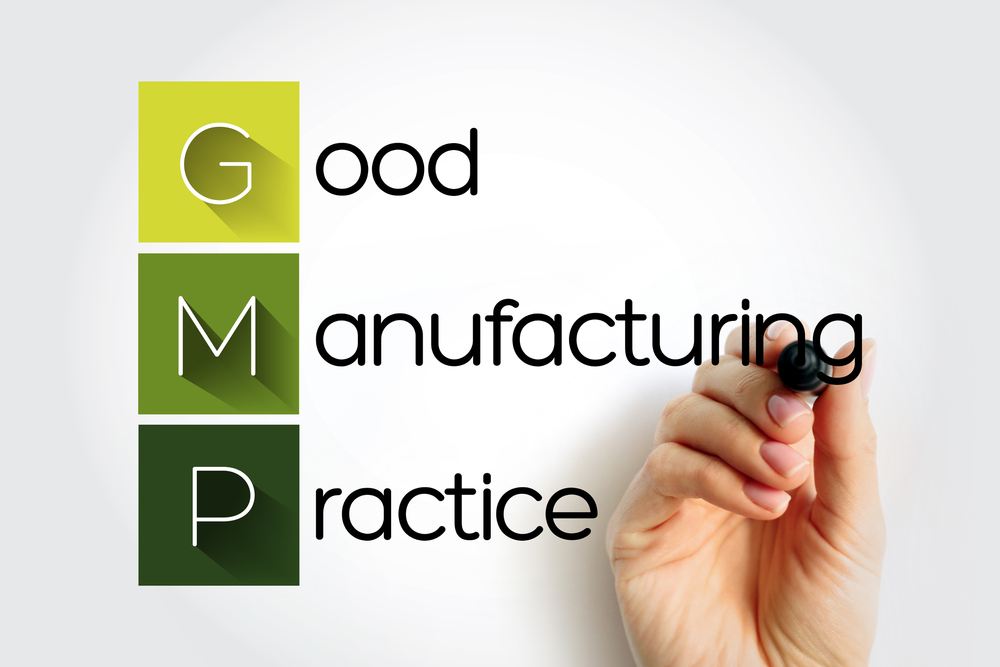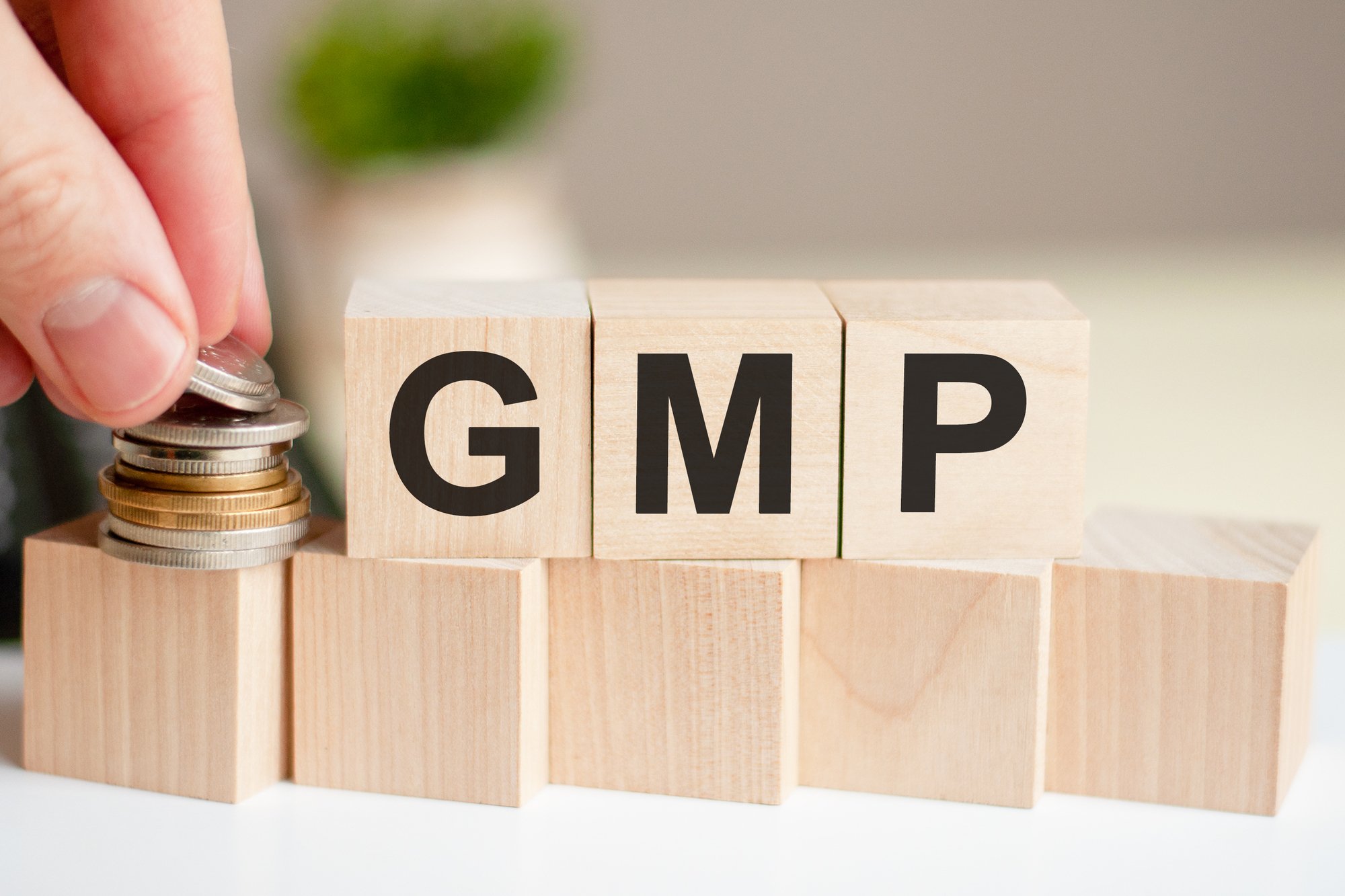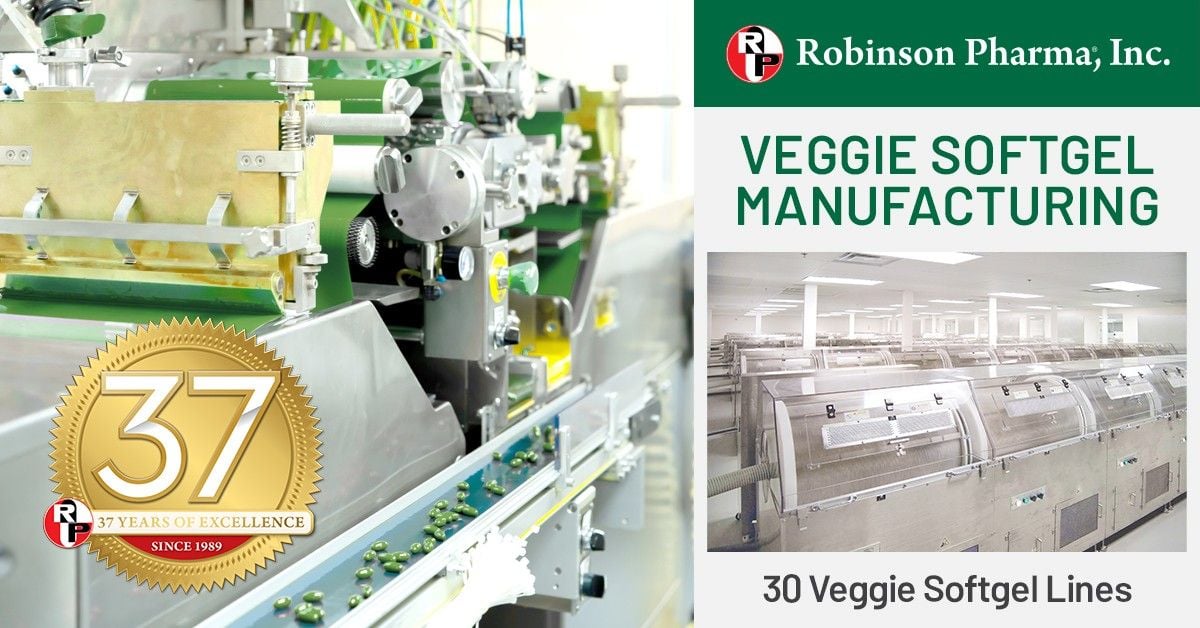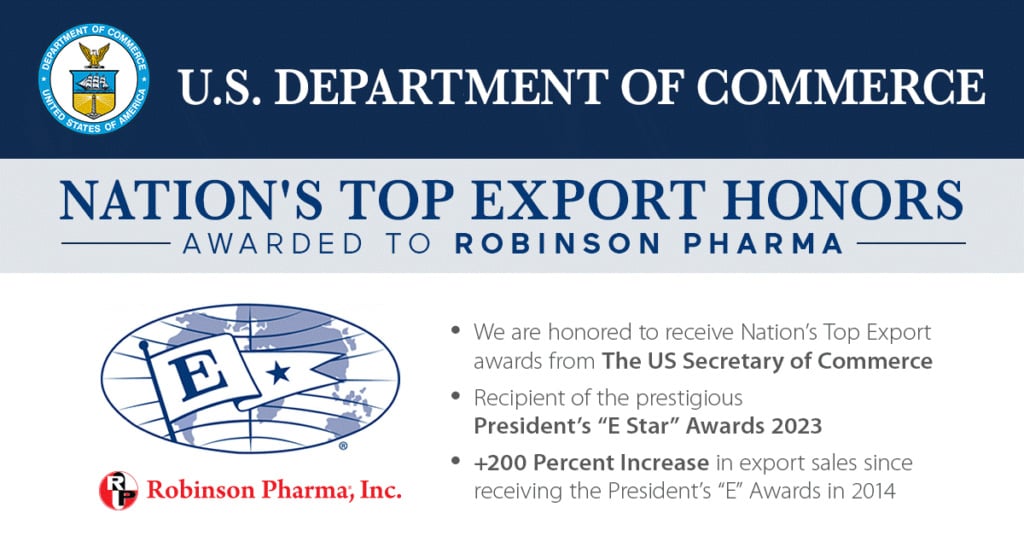In the dietary supplement industry, ensuring product quality and safety is a top priority. One of the key standards that helps achieve this is GMP, which stands for “Good Manufacturing Practice.” So, what is GMP? It is a set of principles and processes to manage production, ensuring that products are made safely, effectively, and reliably. This article will provide insights into GMP, its importance in dietary supplement manufacturing, and best practices that manufacturers should follow.
Key Takeaways
- GMP is a system of guidelines and regulations to ensure products are produced and controlled according to quality standards.
- Compliance with GMP is crucial as it helps products meet high-quality standards, prevents contamination, and reduces consumer risks.
- The five main components of Good Manufacturing Practice are product, people, premises, processes, and procedures.
What is GMP – Good Manufacturing Practice?
GMP, or Good Manufacturing Practice, is a system that standardizes the production process to ensure products are produced and controlled consistently according to established quality criteria. The definition of GMP emphasizes that every aspect of the production process, from raw materials to finished products, must adhere to strict criteria to ensure user safety and effectiveness.
Good Manufacturing Practice is also a critical requirement for the dietary supplement industry because it ensures product quality and safety, directly impacting consumer health. By applying GMP principles, manufacturers can minimize risks related to contamination and errors in processing and ensure that the final product meets safety and nutritional standards.
Unlike traditional manufacturing methods, GMP requires a comprehensive monitoring and control system. While some methods focus only on quality checks at the final stage, every step in the process must be carefully monitored and documented. This distinction helps protect consumers and build trust in dietary supplement products in the market.

Why is GMP Compliance Crucial?
Compliance with current Good Manufacturing Practice (GMP) is essential in dietary supplement manufacturing because it contributes to ensuring product effectiveness and safety. A clear example of the importance of current Good Manufacturing Practice can be seen in incidents related to dietary supplements. Many products on the market have been found to contain harmful ingredients or fail to meet quality standards, posing risks to consumer health. Cases such as supplements containing less than or no declared ingredients illustrate the risks associated with non-compliance with current GMP regulations.
Additionally, most countries only allow importing and selling dietary supplements produced according to international GMP standards. This helps protect public health and promotes the export of national products. Governments can achieve this by requiring the application of current GMP for all dietary supplement manufacturing activities and training inspectors on these requirements.
5 Key Elements of GMP – Good Manufacturing Practice
Product
In Good Manufacturing Practice (GMP), the quality of raw materials plays a crucial role in ensuring the final product, especially for dietary supplements. All products must adhere to an accurate formulation and not deviate throughout the production process. This requires a robust quality assurance system, including regular testing and continuous comparison to ensure specifications are maintained at every stage of production.
People
The success of GMP primarily depends on people. Staff must be well-trained and thoroughly understand the key elements of GMP, including material handling processes, hygiene, and record-keeping. Training is not just an investment but a critical factor in ensuring product quality. Each employee must strictly adhere to production regulations, take on specific roles, and be regularly evaluated to enhance individual competencies.
Premises
The facilities where production activities take place are also an essential component of GMP. Facilities and equipment need to be designed, constructed, and maintained to minimize contamination risks and quality issues. Timely sanitation and maintenance are critical factors for ensuring safe and effective production. For example, regular checks for leaks or contamination risks in the dietary supplement industry are crucial to protect user health.
Processes
Every production process needs to be documented and strictly followed. Regular audits and monitoring of production processes help ensure consistency and product quality. Manufacturers should have a written framework for the entire process, from production to distribution, and this documentation should be made available to all staff. This not only helps protect processes but also enhances compliance with quality standards.

Procedures
Procedures are detailed guidelines necessary for executing production processes and must incorporate the key elements of GMP. Standard Operating Procedures (SOPs) must be updated regularly, and staff need to be well-versed in them. Production procedures will be closely examined during audits to ensure consistency, enhance product quality, and protect consumer health.
10 Principles of GMP
The following are 10 fundamental principles of GMP that you must adhere to ensure quality and safety in the production of dietary supplements:
- Establish Standard Operating Procedures (SOPs): This principle requires manufacturers to create written procedures for each activity. For dietary supplements, developing detailed SOPs ensures that every step in the production process is performed consistently. Documentation must be clear, understandable, and easy to follow to minimize errors during production.
- Implement SOPs and Work Instructions: Strict adherence to established SOPs is crucial. Employees must follow documented procedures to avoid serious errors that could affect product quality. For dietary supplements, this compliance ensures that the final product meets safety and efficacy standards.
- Record Work Results: Every production process must be documented for review and inspection when issues arise. This documentation provides evidence of compliance with GMP regulations and helps address product-related complaints, thereby enhancing transparency in dietary supplement manufacturing.
- Validate SOP Effectiveness: Validating SOPs is necessary to ensure that processes and techniques maintain product quality. Using cross-checking methods strengthens confidence in the system’s effectiveness. For dietary supplements, this means that every production process must be tested and validated to ensure the product is safe for consumers.
- Design and Use Work Systems: Facilities and equipment must be designed to support safe and efficient production processes. In the dietary supplement industry, designing work systems helps prevent confusion and contamination, ensuring that products consistently meet quality standards.
- Maintain Systems, Facilities, and Equipment: Proper maintenance of facilities and equipment is essential to ensure product quality. Lack of maintenance can lead to contamination risks and equipment failures, which in turn affect the effectiveness of dietary supplement production.
- Develop Employee Competence: Training employees is critical to maintaining product quality. All staff involved in dietary supplement production should be trained in GMP and specific processes to enhance their work competence. This helps them perform their tasks well and ensures that the final product meets safety and quality standards.
- Prevent Contamination through Hygiene: Hygiene is a key factor in the production of dietary supplements. This principle emphasizes the necessity of maintaining cleanliness to prevent contamination. Production facilities must implement regular and strict hygiene procedures to protect consumer health.
- Ensure Quality Control: Every stage of dietary supplement production must have clear quality control measures. This ensures that products are tested for consistency, purity, and potency, thus safeguarding consumer safety.
- Conduct Regular GMP Audits: Periodic audits are necessary to evaluate the effectiveness of GMP compliance. Regular audits help identify and rectify potential issues, improving dietary supplement production. This also ensures that all procedures are maintained and developed to the highest standards.
Guidelines and Regulations
GMP Guidelines in the US and EU
GMP (Good Manufacturing Practice) plays a crucial role in managing the quality of dietary supplement products in the United States and the European Union (EU). While there are many similarities, there are also notable differences in GMP guidelines between the two regions.
In the United States, GMP is enforced through the CGMP (Current Good Manufacturing Practice) regulations set by the Food and Drug Administration (FDA). These regulations apply to various industries, including dietary supplements, cosmetics, medical devices, and pharmaceuticals. The FDA conducts regular inspections to assess compliance with these regulations, and serious violations may lead to product recalls, affecting both profits and business operations.
Conversely, the EU has a more complex regulatory system that includes multiple directives and regulations related to GMP, such as Regulation No. 1252/2014 and Directive 2001/83/EC. EU GMP guidelines provide general principles and specific annexes for different product types. This allows the EU to implement stricter quality control measures, particularly for pharmaceutical and dietary supplement products.

Manufacturing Practices Covered by GMP Guidelines
GMP regulations encompass many important aspects of dietary supplement production. These practices ensure that products are not only safe but also effective when marketed:
- Labeling: Product labeling is an essential part of the GMP process. Information on labels must be accurate and comprehensive, including ingredients, usage instructions, and relevant warnings. This helps consumers understand the product and use it safely.
- Formulation: The production process for dietary supplements requires clearly defined and strictly followed formulations. This ensures that each batch of product is produced with the same quality and efficacy while preventing errors in composition.
- Distribution: GMP regulations also cover the product distribution process. This requires manufacturers to ensure that products are stored and transported under appropriate conditions to maintain quality. Temperature, humidity, and hygiene controls during distribution are critical to preventing contamination.
- Quality Testing: All products must undergo stringent testing procedures before marketing. These tests aim to verify the products’ consistency, purity, and potency, ensuring that they meet safety and efficacy standards.
Compliance Implementation
Implementing compliance with GMP guidelines is crucial in ensuring that products meet the highest quality standards, particularly in the pharmaceutical and contract supplement manufacturing industries. Below are essential steps to adhere to GMP guidelines:
- Evaluate Current Processes
- Develop Standard Operating Procedures (SOP)
- Train Employees
- Monitor and Assess
- Validate Processes
- Conduct Regular Audits
In this context, the quality team is extremely important in ensuring GMP compliance. A skilled workforce will focus on improving production processes and ensuring that GMP standards are strictly followed. The quality team also monitors equipment and processes, ensuring that all operations meet quality and safety requirements.

Finally, improving GRC management is a critical factor in maintaining GMP compliance. Enhancing GRC management may include:
- Integrating Technology: Using GRC management software to track, assess, and report compliance status.
- Establishing Clear Processes: GRC processes must be clear and transparent, with specific responsibilities assigned to each team member.
- Continuous Monitoring and Evaluation: Ongoing monitoring and evaluation are essential to ensure that any changes in production processes are recorded and adjusted promptly.
Regulatory Enforcement
Enforcing GMP standards is vital for protecting public health, and regulatory agencies such as the FDA (U.S. Food and Drug Administration) play an essential role in this process.
The FDA is the primary agency responsible for overseeing and enforcing GMP regulations in the United States. This agency ensures that food, pharmaceuticals, and other medical products are produced according to strict safety and quality standards. FDA activities include:
- Inspections of Manufacturing Facilities: The FDA conducts periodic inspections to assess whether facilities comply with GMP regulations. If violations are found, the agency may require remediation or stricter measures to be implemented.
- Product Approval: Before a new product is launched on the market, the FDA requires manufacturers to provide evidence of GMP compliance during production. This ensures that the product meets safety and efficacy standards.
- Post-Market Surveillance: After a product is on the market, the FDA continues to monitor it for potential issues through reports from consumers and manufacturers.
In addition to the FDA, many other national and local agencies, such as the CDC (Centers for Disease Control and Prevention) and the EPA (Environmental Protection Agency), are also involved in enforcing GMP, ensuring that all aspects related to public health are tightly regulated.
Failure to comply with GMP can lead to serious consequences, including consumer health risks, product recalls, and legal liability (fines, prosecutions, or operational suspensions).
To mitigate these consequences, the FDA takes several robust actions to protect the public, including conducting random inspections of manufacturing facilities and products to ensure compliance with GMP regulations, providing detailed guidelines on GMP standards for manufacturers, organizing training programs and workshops to raise awareness about GMP and safe production processes; and launching public health protection campaigns.
Training and Resources
GMP Training Opportunities
GMP training opportunities for staff are essential to ensure they understand and comply with safe manufacturing processes. Many organizations and training centers offer GMP courses, including:
- Online Courses: Many organizations provide online courses that allow employees to learn at their own pace. These courses often cover topics such as production processes, quality control, and food safety hygiene.
- Workshops and Conferences: Industry workshops are ideal for employees to meet experts and learn about the latest trends in the field. These events also provide opportunities to discuss challenges and solutions related to GMP compliance.
- Certification Programs: Some organizations offer GMP certification programs, helping employees master the knowledge and skills necessary to maintain GMP standards in their daily work.

Customer Experiences with GMP Compliance
Customer experiences with GMP compliance can be evidenced through various case studies and testimonials. Many companies have shared that implementing GMP improves product quality and enhances consumer trust.
We have not recorded specific examples of customer experiences regarding a manufacturer’s GMP compliance. However, consider putting yourself in the position of a customer using dietary supplements; you would certainly appreciate a company that has improved its manufacturing processes through GMP implementation, minimizing contamination risks and achieving your complete satisfaction.
SafetyCulture’s Solutions for GMP Adherence
SafetyCulture offers a mobile-first operational platform that helps dietary supplement manufacturers maintain effective GMP compliance. SafetyCulture’s tools and software enable manufacturers to efficiently maintain GMP compliance through document management, process monitoring, online training, and more.
Additionally, SafetyCulture promotes a culture of accountability, streamlines workflows, saves time and costs, minimizes risks, enhances communication, and fosters data-driven improvements.
ISPE Resources Related to GMP
ISPE (International Society for Pharmaceutical Engineering) provides a range of educational and professional resources related to GMP, including:
- Guidelines: ISPE releases detailed guidelines on GMP practices, helping manufacturers stay informed about the latest regulations and standards.
- Industry Conferences: ISPE organizes conferences and events where industry experts can share knowledge and experience, as well as update trends in GMP practices.
- Online Community: ISPE offers a platform for members to connect and discuss GMP-related issues, creating an environment for learning and collaboration.
- For more information about ISPE’s good manufacturing practice resources and to join the ISPE Practice Community, please refer to their website.
Related Considerations
Difference between GMP and cGMP
The main difference between GMP (Good Manufacturing Practice) and cGMP (current Good Manufacturing Practice) lies in the emphasis of cGMP on compliance with current manufacturing standards, ensuring that processes and technologies are updated and aligned with the latest advancements in the industry.
In the production of dietary supplements, the application of cGMP ensures that products are safe and effective and requires manufacturers to regularly review and improve their production processes to meet current standards. This includes employee training, process validation, and updating equipment according to the latest technologies, thereby optimizing product quality and protecting consumer health.

Difference between GMP and ISO
GMP and ISO (International Organization for Standardization) are both important standards in manufacturing, but they serve different purposes.
GMP focuses on ensuring that products are produced safely and effectively through strict manufacturing processes, particularly in the dietary supplement sector. Meanwhile, ISO primarily aims to enhance organizations’ overall quality and performance through process management.
For dietary supplement manufacturing, GMP requires specific quality controls for each stage of production, while ISO can apply to the entire quality management system of the organization. This difference can influence how dietary supplement manufacturers design and implement their quality management processes.
GMP requirements in human clinical trials facility
In the context of clinical trials for dietary supplements, GMP requirements become particularly important to ensure the safety and efficacy of the products. Clinical trial facilities must comply with GMP regulations to ensure that every stage, from production to distribution, is tightly controlled.
Based on the mandate under Section 505(i) of the FD&C Act (21 U.S.C. 355(i)), in the preamble of the cGMP 1978, Comment No. 49 states, “The Commissioner finds that, as stated in 211.1, these cGMP regulations apply to the preparation of any drug product for human or animal use, including products still in research stages. The manufacturing process of drug products in the development phase must be thoroughly documented and controlled to ensure reproducibility for subsequent trials and for final commercial production”.
The Prequalification Team of the World Health Organization (WHO) – Inspection Service (PQT/INS) has highlighted the urgency of revising WHO Good Manufacturing Practices: supplementary guidelines for the production of investigational pharmaceutical products for human clinical trials. The fifty-fifth Expert Committee on Specifications for Pharmaceutical Preparations unanimously supported this proposal. The aim of this update is to align the guidelines with current expectations and trends in good practices and harmonize the text with the principles of other relevant international guidelines.
Conclusion
In summary, GMP is not just a regulation to comply with in the production of dietary supplements; it is a solid foundation that helps build consumer trust. Understanding what GMP (Good Manufacturing Practice) is and applying it correctly improves product quality and protects public health. Robinson Pharma and other dietary supplement manufacturers must commit to implementing GMP to ensure their products meet the highest standards, thus contributing to the industry’s sustainable development.



